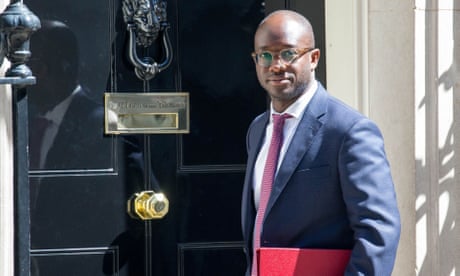Theresa May has sought to frame her deal as a battle between the forces of common sense and wreckers – either Brexiteers or Remainers. Sam Gyimah’s resignation complicates this narrative due to the type of politican he is. Not a firebreathing Eurosceptic allergic to the idea of compromise, not an Adonis-style hyperventilater who never recovered from losing the referendum. He’s a moderate, who tried his best to reconcile himself to Theresa May’s deal – and a young MP who, unlike her, will be around to deal with the consequences.
She had hoped that the longer people had to reflect on her deal, the more people would see her deal as a sensible middle way. Instead, MPs have come to see it as a trap that Britain will struggle to escape given that we will be in the EU system with no voice, no vote and having handed over the £39bn and regulatory control of Northern Ireland. As he said this morning, it’s not even a deal: the UK has presented a wish list that involves free trade and we hope the EU will behave honourably and in good faith. But it’s precisely the EU’s behaviour over the Galileo satellite project that made him resign: it kicked Britain out for no good reason at all, refusing to return any of cash we have sunk into it. A sign of what might be to come.
We never quite knew how the EU would behave once we agreed terms of exit. The Withdrawal Agreement, whereby we give the EU money up front before negotiating anything in return, relied on good faith. Sam Gimayh says the Galileo affair shows that it is naive to expect that good faith, dangerously so.
He also rejected as false her choice between her deal or no-deal chaos, and speaks for perhaps the majority in refusing to believe that there is not a better option. The talk of calamity that we have seen recently (not least the back-to-the-1930a spin we had courtesy of Mark Carney and the Bank of England) all backfire because this insults the intelligence of voters. Comparable to the Depression? No drinking water? No aircraft landing? No Mars bars? And no choice but to sign a deal that no one in May’s government can bring themselves to describe as a good deal?
Sam Gymiah today points to other, firmer-grounded fears. What if the EU takes what he – a Remainer – regards as a vindictive approach to Britain, the better to show the various Eurosceptic parties where their path leads? The hope was that, once the deal was agreed, better relations could resume. Gymiah now talks about the “naive” assumptions of EU goodwill, and says that Brussels moved on Galileo before the “ink was dry” on the deal. This, he says, could be just the start- and soon we will have no voice and no veto. Yet still exposed to all the EU’s rules.
So yes, no-deal has its risks. As does a new referendum. But walking into the trap May has set? To Sam Gimayh, it’s the biggest risk of all. Even those around May don’t believe the horror stories she has to say. No deal would be as one of her officials told me, “more Millennium Bug than World War III”. Her ministers simply cannot bring themselves to regurgitate scare stories that they do not believe to be true, while ignoring risks of her deal that they believe to be either under-explained or deliberately concealed.
Project Fear is failing now just as it failed in the Scottish and EU referenda. I would say that May has to change tactics but I’m not sure she has time. There are other options, and Sam Gyimah has quit to see what they might be. Meanwhile he will seek to vote down her deal – then see what, or who, might follow.







Comments